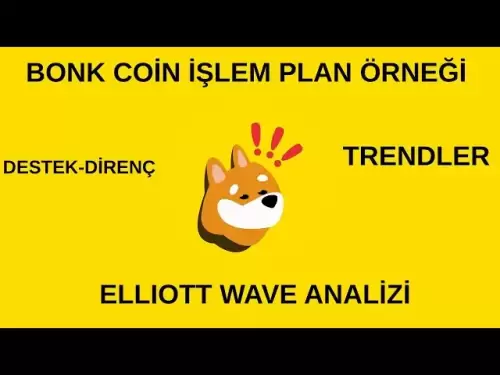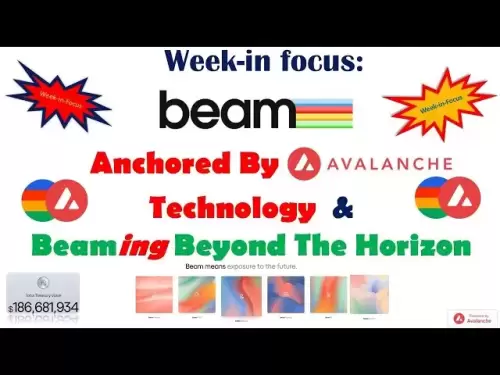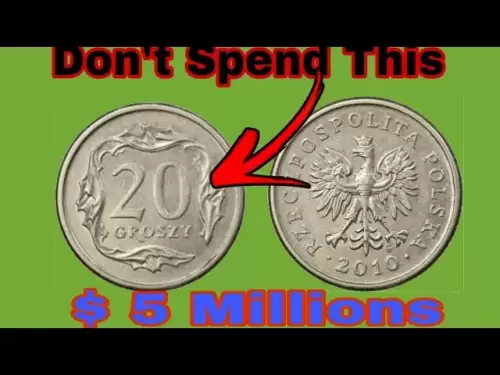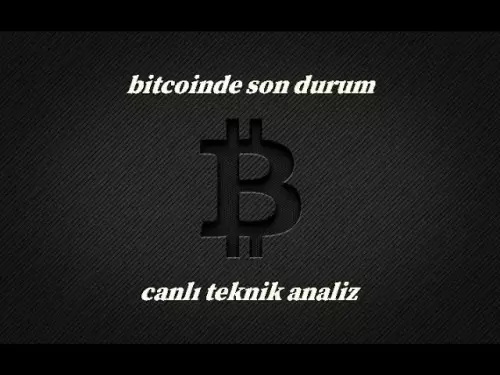-
 Bitcoin
Bitcoin $108,562.4295
0.46% -
 Ethereum
Ethereum $2,533.9553
1.52% -
 Tether USDt
Tether USDt $1.0002
-0.01% -
 XRP
XRP $2.2542
2.23% -
 BNB
BNB $662.4567
1.48% -
 Solana
Solana $151.4114
3.48% -
 USDC
USDC $0.9999
0.00% -
 TRON
TRON $0.2860
0.91% -
 Dogecoin
Dogecoin $0.1685
3.72% -
 Cardano
Cardano $0.5809
1.63% -
 Hyperliquid
Hyperliquid $39.2916
1.85% -
 Sui
Sui $2.8874
0.85% -
 Bitcoin Cash
Bitcoin Cash $496.5801
2.72% -
 Chainlink
Chainlink $13.3582
2.48% -
 UNUS SED LEO
UNUS SED LEO $9.0279
0.07% -
 Avalanche
Avalanche $18.0773
2.30% -
 Stellar
Stellar $0.2426
3.05% -
 Toncoin
Toncoin $2.9086
6.01% -
 Shiba Inu
Shiba Inu $0.0...01170
2.97% -
 Hedera
Hedera $0.1587
3.47% -
 Litecoin
Litecoin $87.4596
1.13% -
 Monero
Monero $317.0425
0.73% -
 Polkadot
Polkadot $3.3778
1.90% -
 Dai
Dai $0.9999
-0.01% -
 Ethena USDe
Ethena USDe $1.0001
-0.01% -
 Bitget Token
Bitget Token $4.4095
0.63% -
 Uniswap
Uniswap $7.3593
6.80% -
 Pepe
Pepe $0.0...09910
3.64% -
 Aave
Aave $274.7388
2.68% -
 Pi
Pi $0.4607
0.48%
What coin is Magpie?
Magpie, a decentralized exchange built on the Balancer protocol, offers efficient and cost-effective trades, multi-asset swaps, and advanced order types within a user-friendly interface.
Dec 27, 2024 at 10:25 am

Key Points:
- Magpie is a decentralized exchange for Ethereum-based assets.
- It operates on the Balancer protocol, providing users with various benefits and features.
- Magpie's unique algorithm facilitates efficient and cost-effective trades.
- The platform offers a user-friendly interface and advanced trading tools.
- Magpie is backed by a team of experienced cryptocurrency professionals.
What is Magpie?
Magpie is a decentralized exchange (DEX) built on the Balancer protocol, a leading Ethereum-based automated market maker (AMM) protocol. It enables users to trade various Ethereum-based assets in a decentralized and secure manner. Unlike centralized exchanges, Magpie does not hold user funds, eliminating the risk of hacking or misappropriation.
How Magpie Works:
- Balancer Protocol: Magpie leverages the Balancer protocol's smart contracts to provide liquidity pools for various assets. These pools consist of at least two different cryptocurrencies, and the relative weights of these assets determine the exchange rate between them.
- Efficient Trades: Magpie's smart contract automatically adjusts the weights within each pool to minimize slippage during trades. This results in more efficient and cost-effective executions, especially for larger trades.
- Multi-Asset Swaps: Magpie supports trading between multiple assets simultaneously, allowing users to execute complex swaps with a single transaction. This feature enhances convenience and saves on transaction fees.
- Advanced Order Types: The platform supports limit orders, which allow users to define a specific price at which they want to buy or sell an asset. This feature provides greater control over trade execution and helps users achieve their trading goals.
User-Friendly Interface:
Magpie offers a user-friendly interface designed to simplify trading for both experienced and beginner users. The platform features intuitive charts, clear market data, and customizable settings. Users can easily connect their Ethereum wallets and start trading within minutes.
Advanced Trading Tools:
Magpie provides advanced trading tools that cater to experienced traders. These tools include real-time charts, technical indicators, and customizable chart settings. Users can effectively analyze market movements and make informed trading decisions.
Team and Backing:
Magpie is backed by a team of experienced cryptocurrency professionals with a proven track record in the industry. The team's expertise in blockchain technology, decentralized finance, and trading ensures the platform's reliability and innovation.
FAQs:
What sets Magpie apart from other DEXs?
- Magpie leverages the advanced features of the Balancer protocol, providing more efficient trades, multi-asset swaps, and advanced order types.
Is Magpie safe to use?
- As a decentralized exchange, Magpie does not hold user funds, minimizing the risk of hacking or misappropriation.
What is the advantage of using the Balancer protocol?
- The Balancer protocol's liquidity management algorithm ensures more efficient trades and reduces slippage, especially for large trades.
Does Magpie support all Ethereum-based assets?
- Magpie currently supports a wide range of Ethereum-based assets, including tokens, stablecoins, and wrapped assets.
How can I get started with Magpie?
- Users can connect their Ethereum wallets to Magpie and start trading after a simple registration process.
Disclaimer:info@kdj.com
The information provided is not trading advice. kdj.com does not assume any responsibility for any investments made based on the information provided in this article. Cryptocurrencies are highly volatile and it is highly recommended that you invest with caution after thorough research!
If you believe that the content used on this website infringes your copyright, please contact us immediately (info@kdj.com) and we will delete it promptly.
- Coin-Flipping Chaos: A Look at Pokémon TCG's Luckiest (and Riskiest) Cards & Deck Ranking
- 2025-07-07 05:10:12
- Crypto Coins, DEXTools, and the Trending Triumvirate: Jupiter, Kamino, and Wormhole
- 2025-07-07 05:10:13
- Ethereum's Evolution: Gas Limits, Vitalik Buterin, and the Institutional Embrace
- 2025-07-07 05:30:12
- Pepe Coin vs. LILPEPE: Price Predictions and the Future of Meme Coins
- 2025-07-07 05:35:13
- Litecoin, HBAR, and Altcoins: Navigating the Crypto Landscape in 2025
- 2025-07-07 04:30:13
- CZ, TON, and the UAE Golden Visa: Is It Too Good to Be True?
- 2025-07-07 05:40:12
Related knowledge

How to customize USDT TRC20 mining fees? Flexible adjustment tutorial
Jun 13,2025 at 01:42am
Understanding USDT TRC20 Mining FeesMining fees on the TRON (TRC20) network are essential for processing transactions. Unlike Bitcoin or Ethereum, where miners directly validate transactions, TRON uses a delegated proof-of-stake (DPoS) mechanism. However, users still need to pay bandwidth and energy fees, which are collectively referred to as 'mining fe...

USDT TRC20 transaction is stuck? Solution summary
Jun 14,2025 at 11:15pm
Understanding USDT TRC20 TransactionsWhen users mention that a USDT TRC20 transaction is stuck, they typically refer to a situation where the transfer of Tether (USDT) on the TRON blockchain has not been confirmed for an extended period. This issue may arise due to various reasons such as network congestion, insufficient transaction fees, or wallet-rela...

How to cancel USDT TRC20 unconfirmed transactions? Operation guide
Jun 13,2025 at 11:01pm
Understanding USDT TRC20 Unconfirmed TransactionsWhen dealing with USDT TRC20 transactions, it’s crucial to understand what an unconfirmed transaction means. An unconfirmed transaction is one that has been broadcasted to the blockchain network but hasn’t yet been included in a block. This typically occurs due to low transaction fees or network congestio...

How to check USDT TRC20 balance? Introduction to multiple query methods
Jun 21,2025 at 02:42am
Understanding USDT TRC20 and Its ImportanceUSDT (Tether) is one of the most widely used stablecoins in the cryptocurrency market. It exists on multiple blockchain networks, including TRC20, which operates on the Tron (TRX) network. Checking your USDT TRC20 balance accurately is crucial for users who hold or transact with this asset. Whether you're sendi...

What to do if USDT TRC20 transfers are congested? Speed up trading skills
Jun 13,2025 at 09:56am
Understanding USDT TRC20 Transfer CongestionWhen transferring USDT TRC20, users may occasionally experience delays or congestion. This typically occurs due to network overload on the TRON blockchain, which hosts the TRC20 version of Tether. Unlike the ERC20 variant (which runs on Ethereum), TRC20 transactions are generally faster and cheaper, but during...

The relationship between USDT TRC20 and TRON chain: technical background analysis
Jun 12,2025 at 01:28pm
What is USDT TRC20?USDT TRC20 refers to the Tether (USDT) token issued on the TRON blockchain using the TRC-20 standard. Unlike the more commonly known ERC-20 version of USDT (which runs on Ethereum), the TRC-20 variant leverages the TRON network's infrastructure for faster and cheaper transactions. The emergence of this version came as part of Tether’s...

How to customize USDT TRC20 mining fees? Flexible adjustment tutorial
Jun 13,2025 at 01:42am
Understanding USDT TRC20 Mining FeesMining fees on the TRON (TRC20) network are essential for processing transactions. Unlike Bitcoin or Ethereum, where miners directly validate transactions, TRON uses a delegated proof-of-stake (DPoS) mechanism. However, users still need to pay bandwidth and energy fees, which are collectively referred to as 'mining fe...

USDT TRC20 transaction is stuck? Solution summary
Jun 14,2025 at 11:15pm
Understanding USDT TRC20 TransactionsWhen users mention that a USDT TRC20 transaction is stuck, they typically refer to a situation where the transfer of Tether (USDT) on the TRON blockchain has not been confirmed for an extended period. This issue may arise due to various reasons such as network congestion, insufficient transaction fees, or wallet-rela...

How to cancel USDT TRC20 unconfirmed transactions? Operation guide
Jun 13,2025 at 11:01pm
Understanding USDT TRC20 Unconfirmed TransactionsWhen dealing with USDT TRC20 transactions, it’s crucial to understand what an unconfirmed transaction means. An unconfirmed transaction is one that has been broadcasted to the blockchain network but hasn’t yet been included in a block. This typically occurs due to low transaction fees or network congestio...

How to check USDT TRC20 balance? Introduction to multiple query methods
Jun 21,2025 at 02:42am
Understanding USDT TRC20 and Its ImportanceUSDT (Tether) is one of the most widely used stablecoins in the cryptocurrency market. It exists on multiple blockchain networks, including TRC20, which operates on the Tron (TRX) network. Checking your USDT TRC20 balance accurately is crucial for users who hold or transact with this asset. Whether you're sendi...

What to do if USDT TRC20 transfers are congested? Speed up trading skills
Jun 13,2025 at 09:56am
Understanding USDT TRC20 Transfer CongestionWhen transferring USDT TRC20, users may occasionally experience delays or congestion. This typically occurs due to network overload on the TRON blockchain, which hosts the TRC20 version of Tether. Unlike the ERC20 variant (which runs on Ethereum), TRC20 transactions are generally faster and cheaper, but during...

The relationship between USDT TRC20 and TRON chain: technical background analysis
Jun 12,2025 at 01:28pm
What is USDT TRC20?USDT TRC20 refers to the Tether (USDT) token issued on the TRON blockchain using the TRC-20 standard. Unlike the more commonly known ERC-20 version of USDT (which runs on Ethereum), the TRC-20 variant leverages the TRON network's infrastructure for faster and cheaper transactions. The emergence of this version came as part of Tether’s...
See all articles

























































































